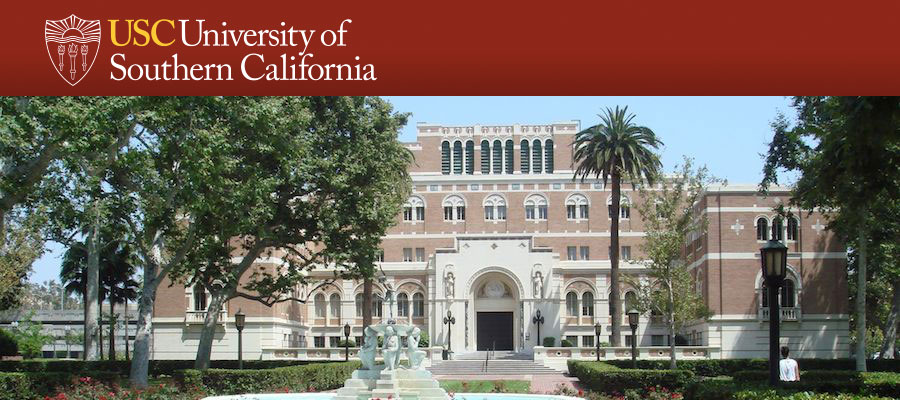The USC Society of Fellows in the Humanities invites applications for its 2020–2022 cohort of postdoctoral fellows.
The USC Society of Fellows in the Humanities supports advanced research by postdoctoral fellows and faculty members by promoting intellectual exchange and interdisciplinary approaches to research and teaching in the humanities and humanistic social sciences.
The USC Society of Fellows in the Humanities is an interdisciplinary community of postdoctoral scholars and faculty members in the humanities and humanistic social sciences. Fellows meet regularly in formal and informal settings to present and discuss advanced scholarly research. Postdoctoral fellows are affiliated with the Society as well as with a USC department of their choice, and have faculty mentors in both. Postdoctoral fellows in the humanities engage with each other as well as humanities departments, institutes, and centers at USC and in the broader Los Angeles area.
Each year the Society admits up to five postdoctoral fellows, who are appointed for two-year terms during which they pursue research and teach three courses over four semesters, with one semester for full-time research. They are expected to reside in the Los Angeles area during the academic year and to participate in the scholarly life of the Society, the host department, and the university.
Eligibility
To apply for the 2020–2022 cohort, candidates must have received their Ph.D. no earlier than July 1, 2016 and must have completed their doctoral degree by July 1, 2020. Scholars who received their doctorates from the University of Southern California are not eligible to apply. Non U.S. citizens are eligible to apply for this program.
Applicants' research and teaching must be in the humanities and humanistic social sciences, with potential affiliation in one of the following departments or schools at the University of Southern California: American Studies and Ethnicity; anthropology; archaeology; art and architectural history; classics; economics; film; geography; history; languages and literatures; legal studies; linguistics; musicology; philosophy; political science; psychology (excluding clinical or counseling psychology); religious studies; rhetoric, communication, and media studies; sociology; and theater, dance, and performance studies. Proposals in the social science fields listed above are eligible only if they employ predominantly humanistic approaches (e.g., economic history, law and literature, political philosophy, history of psychology).
